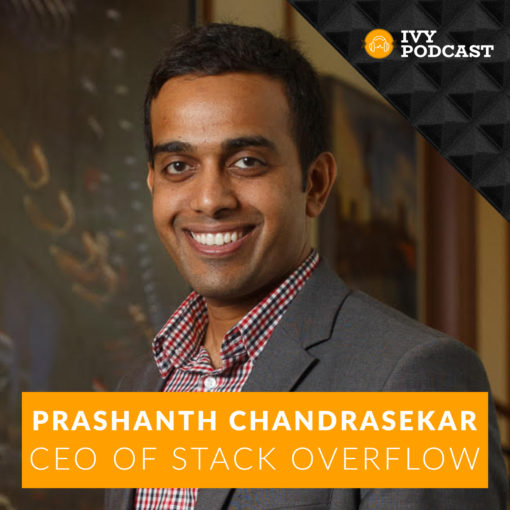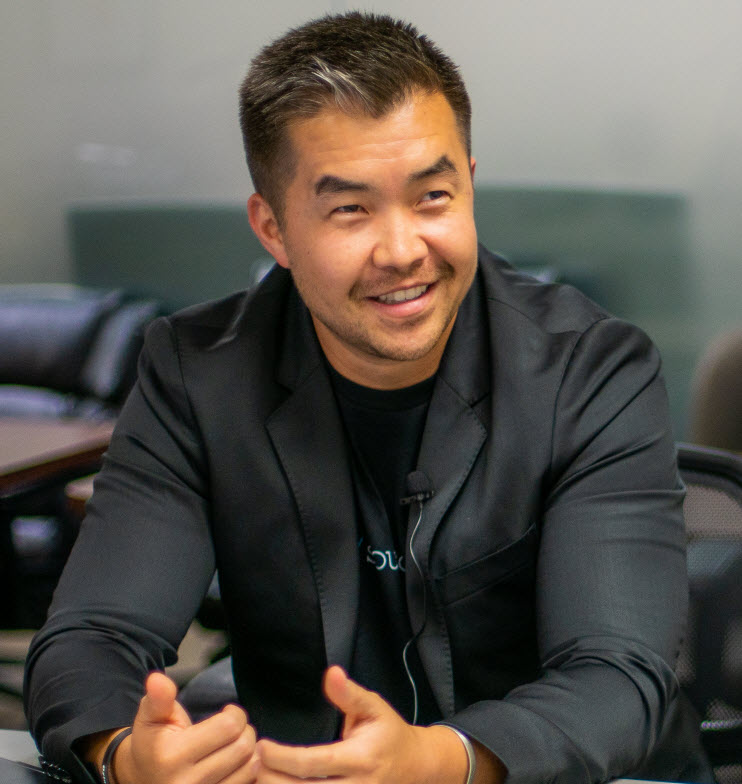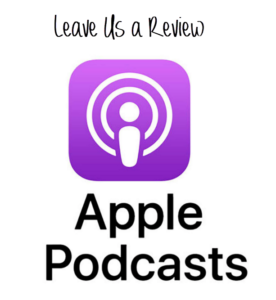
Bryan is a globally recognized thought leader in the world of extended work and open talent. With a unique perspective on the ever-growing demand for comprehensive workforce solutions,
he is a widely sought-after keynote speaker, a passionate evangelist for the open talent industry,
and a highly sought out expert on emerging talent platforms, workforce management programs,
labor models, HR technology, variable and future workforce trends. Through his boutique
consulting firm, Defiant Solutions LLC, he works directly with HR tech providers, service
providers, private equity, and enterprise clients to navigate the ever-changing global talent landscape. His firm utilizes an immense global network of industry experts and specializes in solving complex challenges. Just a few current projects include; working with an industry trade group to develop a unique set of industry standards for open talent platform businesses, creating new go-to-market economic model for a North American telehealth provider, developing a diversity certification for independent talent, building a new product offering for a talent platform based in the UK. You can find Bryan being featured in various industry publications, podcasts, webinars as well as Forbes, Fortune, Buzzfeed, to name a few. Bryan is featured extensively as an industry expert in an upcoming National Public Radio’s Marketplace episode on the future of work in America.
Episode transcription:
[00:00:00] Bryan Peña: [00:00:00] The hard thing to stomach, regardless of whatever industry you're in is that if a client feels like you're a commodity, then there's not going to be a whole lot. You can change it. If he thinks you're a commodity, you're a commodity. Now we agree. I believe holistically completely with every fiber of my being and the value that staffing firms bring and the value that opportunity creates opportunity, providing people a way to make a livelihood that is sacristan, there's a sacred role. I have a deep passion for it, but if the enterprise doesn't feel that the value you bring is truly a strategic one and more of a point solution or a transactional solution. Well, that's that you need to take a good, hard look in the mirror and make a decision. Is this a client you want to work with? Is this an industry we want to be in? Is this the vertical we want to be in? Or what can we do to really meet the value or the value expectations? Of my clients. [00:01:20] Angela Alberty: [00:01:20] Okay everyone today, I have Brian Pena on the show. We are so excited to have you today. Brian, I have been a fan for some time with you and your prevalence in your staffing industry. Go ahead and give us a brief introduction on yourself. [00:01:34] Bryan Peña: [00:01:34] Thank you, Angela. And thank you for having me today. My name is Bryan Pena. I am the principal for my own private consulting firm called Defiant Security Solutions Ltd, LLC. Prior to forming defined solutions I was the chief of market strategy for MBO partners. And then prior to that I was the senior vice president of continued workforce strategies for staffing industry analysts. [00:01:58] Angela Alberty: [00:01:58] Awesome. So, Brian, like I said, I've been super excited to interview you today. You were one of the first people I reached out to as I announced a podcast host for the Ivy Podcast. And I've created this kind of trend with each podcast episode, it's called the fire and dice questions. It's a ring of fire to kind of put you under the pressure, but the ice part is to break the ice and get to know you a little bit better after all. So tell us, are you an early bird or a night out? [00:02:29] Bryan Peña: [00:02:29] Yes, I actually don't get a whole lot of sleep. I usually sleep maybe four or five hours a night, so I go to bed relatively late and wake up relatively early. So I'm one of those freaks, I guess I drink a lot of coffee. [00:02:48] Angela Alberty: [00:02:48] Okay. Gotcha. All right. So most interesting facts that people probably wouldn't associate with Brian Penya. [00:02:54] Bryan Peña: [00:02:54] I'm trying to think of something that I haven't talked about before. I think something that people might not know is that one of my favorite things to do with stand up comedy. So, last year I did my first set at the con at the improv in Hollywood, did a standup comedy set there. So a lot of people might not be aware of that, but that's one of my first loves is comedy. [00:03:23] Angela Alberty: [00:03:23] Wow, totally would never have guessed that. Definitely, definitely surprised by that. Okay. What do you live by to stay organized besides coffee? [00:03:34] Bryan Peña: [00:03:34] Well, I think the app that I could not live without is Calendly, the calendaring app. I think that putting the Calendly link into my email and just kind of directing people to set time, that way is 100% a time-saver no question. So it saves a ton of time. I highly highly recommend it. I don't get any kickbacks for it, but I do highly recommend the application. [00:04:02] Angela Alberty: [00:04:02] It certainly is a lifesaver, your personal calendar, this word calendar, the other word calendar. Bryan Peña: In fact, that's how we scheduled this today so that we did this that's right in the box. [00:04:10] Angela Alberty: [00:04:10] Okay. So if you weren't the thought leader that you are in the staffing industry, what do you think. Your career that led you to, will you be in the showbiz industry doing comedy or probably something else? [00:04:20] Bryan Peña: [00:04:20] I don't know if I would want to pursue a career in entertainment by any measure. I think I probably go to school and want to teach, probably get a degree, a degree in philosophy or something like that. Like if I had total total freedom to do whatever, I think I would probably do something like that, pursue a career in academia and just explore new ideas. I love new ideas and thoughts, and I like to share those and get people excited about them. So, that's one of the things I probably would want to do is go back to school and get a PhD. [00:04:58] Angela Alberty: [00:04:58] Well, that's what I automatically correlate you to, because when I got, like I told you before the recording, when I first recognized you from teaching me the CC WP certification with SIA, we'll get into that a little bit later, but, all right, so now we can get into the good stuff, the real questions that we wanted to ask you today and what I was hoping the premise to be. Behind this is to make contingent work, flexible work, a notion. That's more understandable to the masses out there. So how would you define the flexible, the staffing and external workforce to somebody that doesn't necessarily know about contingent workforce in general? [00:05:36] Bryan Peña: [00:05:36] Well, gosh, that's such a huge question. I think that really contingent work in all of its forms is simply a mechanism by way enterprises organizations can leverage. People are human capital in nontraditional ways. So, if we think about it in the broadest possible terms, contingent work, extended work is really anybody who is providing services to your organization, who is not a W2 employee of the organization. Now it can get even more squishy when you think about seasonal employment and stuff like that. But for the most part, extended work and continued work is a mechanism by way organizations can engage people in a multitude of different ways. Right? We can go down the rabbit hole on that one. [00:06:29] Angela Alberty: [00:06:29] Yeah. Yeah, we can. [00:06:32] Bryan Peña: [00:06:32] What kind of worker is how many layers exactly it's an independent contractor versus somebody in an outsource call center in Bangladesh. All those sorts of things are just simply ways that people can exchange a skill or a competency for some form of compensation as opposed to establishing a full-time employment relationship. [00:06:57] Bryan Peña: [00:06:57] Untraditional indirect form of finding workers. I like that. That's a good artistic articulate way to, there you go. [00:07:01] Angela Alberty: [00:07:01] All right. So, like I mentioned earlier, you were pretty instrumental in the formalization of the CC WP program with staffing industry analysts. And I'd love to pick your brain on what that experience was like, especially in this rapidly evolving area of continuous. Yeah. Tell us a little bit about that. [00:07:22] Bryan Peña: [00:07:22] Well, the CCP program is something I was incredibly proud of. Well for my time at SIA, and it really started as an idea on a PowerPoint of mine to use. I almost want to say almost 11 years ago, unbelievably, particularly, I saw the need for professionalization of managing the extended workforce. I also realized that there was a very strong need for industry standardization. I mean, way back when there wasn't even a consistent definition of what a reasonable time to fill calculation would be, or what is the definition of a good program versus a bad one. At the same time, providers were struggling with a lot of buyers who are not necessarily educated on the nuances of engaging contingent workers as a strategic resource. So the CCP was something that was born out of that need to fill that hole of understanding and developing a standard language as well as a minimum level of competency for someone to be what is called a competent player in the ecosystem. So we had, at the time we engaged Caesar’s Council Members, large MSP staffing firms, VMs. And then we created a list of core ideas, thoughts, concepts, and bits of knowledge that we felt were necessary for someone to succeed in this emerging kind of domain of expertise. And out of that came the CCDP. Kudos to variation and the leadership team along with myself in putting forward the necessary resources. And now it's really something I'm incredibly proud of. You've taken the class and it's taught on multiple continents and several thousand people. And it's just the goal. I never ceased to be excited and surprised by how people have leveraged it, how it's changed their careers. No, I have a little Google search. So every time somebody puts up, Hey, I got my certification. I got a notice and that drew my best to congratulate them. But it's been a source of tremendous pride to see people such as yourself, take the class. [00:09:35] Angela Alberty: [00:09:35] Yeah, as well. It shouldn't be because, like I said, it's become a standardized form of recognition within the contingent workforce industry. So kudos to you on that. All right. So we've got to talk about the elephant in the room. It's the pandemic, what your thoughts are on the pandemic and what COVID has done. Or what it's going to do to influence the contingent workforce. What do you think is going to happen from that? [00:10:02] Bryan Peña: [00:10:02] Well, I think obviously contingent work has always been the canary in the coal mine for economic activity. Right? So whenever there's a downturn, it's usually the first place you see that sort of thing, ironically, at the same time. And the other side of that coin is as things start to recover, you see that inverse is one of the first things to also recover in terms of full-time memory. So that natural cycle is definitely occurring. It is certainly affecting some industries more than others. For example, the service industry is absolutely decimated, but healthcare, for example, is going through the roof and they're just simply constrained by supply. So I think the pandemic is going to do a couple of different things. It's going to force enterprises and organizations to really reassess how they leverage people. I think that individuals specifically are going to recognize and really kind of reevaluate their priorities. I mean, we've all been subject to this existential crisis of COVID and reassessing our career goals. And we might realize that we might want to work more flexibly. Maybe that's working remotely. Maybe that's deciding to become a digital nomad and working independently. And I think we're going to see a lot more people choosing to kind of go with their own way. One of the interesting statistics that I found really fascinating, independent MC is the rise of people choosing to become solo entrepreneurs. In Q3 of 2019 to Q3 of 2020, it was an 80% increase in individuals applying for employment identification numbers. That means that there are millions of people who are deciding that they're going to go ahead and try and go with their own. And that's just the people who got Yans, not to mention the thousands and thousands and millions of millions, of other people who are choosing to create their own solo practitioner business on the back of many hundreds and hundreds of different platforms in which they can make a living. So I think that we're going to see almost like a Renaissance in kind of new work forms, new forms of working because the organization is really reassessing the way that they average people and trying to identify ways that they can meet people where they are also a kind of influencing model that is, I think people are going to pursue more meaning in the work that they do. They're going to pursue jobs that don't just pay the bills that they can feel passionate about and have a mission to do because crisis youth tend to do that to people is to take stock of their lives and reassess what's important. [00:12:27] Angela Alberty: [00:12:27] I love what you're saying about this, because I think oftentimes we see and read so much about how contingent work can increase just due to businesses. The agility and the agility that they may need to scale up or down in times of economic uncertainty, or just general uncertainty like the pandemic has caused like, but your response was totally geared towards how that's going to affect the worker. I mean more so obviously there's favorability behind businesses doing it, but hello, there's a lot that's happening in the mindset of the worker and the shift that we see into preneurs and how that can pay a part in the work and the fulfillment that they find through what has been a very crisis oriented last couple of years. The real challenge, I think for organizations moving forward is going to be less about sourcing people, sourcing talent, and more about handling talent. [00:13:10] Bryan Peña: [00:13:10] That's a great line, but that's the thing that like my one of my good friends, Neil Bryson, he had that line. I was talking to just today and I thought it was just absolutely the best way to say it is that organizations are really not gonna have a problem with finding people because they're gonna be a wash in resumes and applicants and all these other sorts of things. The real magic is going to be in how they're going to handle them, how they're going to handle these people, because the consequences for a negative employment experience or negative experience overall, it can be quite catastrophic for a brand. I've often argued that paying attention to the experience of your extended workforce is even more important than even focusing on your full-time hiring because the velocity of those individuals through your business is that much greater. And if you create, if they have a negative experience, if you don't respond in a timely manner, if you, the resumes go into a black hole or whatever, you're creating a service terrorist, and that person is going to tell 10 people what a terrible experience they had, don't bother applying. And that's going to poison the well. So, it's going to be easy for those things to occur. If you just have a million people in your ATS. And so the successful strategies moving forward are really going to focus on really creating an excellent experience for everyone who your brand comes in contact with, not just your full-time hires, right. That company branding that is referencing. [00:14:43] Angela Alberty: [00:14:43] I mean, you see a lot about it and you hear a lot about it. So, and the perfect segue to my next question. So. What are some of the biggest changes that you foresee employers or larger enterprise organizations having to do from a technology standpoint, to be able to fulfill or oversee a contingent workforce more successfully? [00:15:07] Bryan Peña: [00:15:07] I think that organizations are going to take a harder look at the way they're implementing their VMs technologies, their vendor management software, their services. Right. I think they're going to take a hard look at how those are implemented, looking at these adoption paths and understanding, really taking a candidate analysis of how effectively these are being deployed. I think a vast number of programs tend to just kind of atrophy over time because they're just good enough. And they're not really pursuing strategic initiatives. I think that sort of atrophy and focusing on simple process efficiencies and cost savings are going to have a negative consequence in the future. So you're going to need to explore. More non-traditional elements of sourcing that includes integrating things like online staffing applications, like Upwork or Fiverr or whatever. They're going to include looking at your direct sourcing strategies without a question, successful organizations are going to be implementing a direct sourcing technology. Right? I think that is 100% in the next big trend we're going to see, just like we talked about before is leveraging those direct sourcing methodologies and really taking a good, hard look at how you leverage statements of work and consulting and kind of reassessing the total talent management narrative. Now I'm not a huge fan of total talent management sincerity, because I think it's a buzzword and in many situations it might be a solution in search of a problem, but I really do think there's something to it in that you look at your whole sort of workforce holistically, as opposed to in the uniform kind of utopian vision that people often express. I believe that it's super important from a technological standpoint to recognize that the sourcing channels can be multifaceted as long as it's coming through a uniform, like application, like a VNS. [00:16:57] Angela Alberty: [00:16:57] So it's really just responding to this digital platform technology that we see is happening with companies like forever or any, I mean, online staffing, you see that trend going upward. So it's capitalizing on inputting or sourcing talent from those models. And also you mentioned direct sourcing. So what's your easiest way to define direct sourcing to the audience listeners out there. And why do you see the uptake happening? [00:17:21] Bryan Peña: [00:17:21] Well, I think direct sourcing in its simplest terms is a way for organizations to monetize their employment brand, to source the extended workforce. There are many ways you can do that. There are talent pools and all these other sorts of things. But at the end of the day, it is simply allowing an enterprise to be able to use their employment brand, to source their extended workforce. And there are dozens of ways that organizations can do that. They can leverage an outsource recruitment partner. They can leverage their own ATS and an internal recruiting team, dozens and dozens of ways. I forgot the second part of the question on that one. [00:17:58] Angela Alberty: [00:17:58] Why do you see the uptake happening going to happen? [00:17:59] Bryan Peña: [00:17:59] Because, one, I think there's a professionalization of individuals who are managing the industry, such as yourself. You have the CCDP people who are making it their career to really look at creative ways to manage contingent work. I don't think we can understate the power that comes from that particular population too. Technology has made it easier for organizations to create and curate these sorts of pools. Right, and then three, like I just mentioned before, these organizations are a wash and candidates just absolutely just flowing with candidates. Every ATS has probably bursted at the seams, putting some skill and discipline behind making sure those folks have a good experience is probably going to be a great way to source full-time hires as well. Moving forward, try before you buy I'll do other sorts of things. So I think those are some of the main forces that are influencing them also containing costs which is a very cost-effective mechanism. And also making sure that you put more revenue in the hands of the workers. One of the benefits of sourcing directors, the margin requirements are obviously lower. So we're able to pay those resources more as opposed to being constrained with a larger market. [00:19:10] Angela Alberty: [00:19:10] Yeah. That's right. And then to that end, just with my background, part of me and no one, I don't think anyone has the answer to this question figured out, but what is that going to mean to the traditional staffing agency? [00:19:26] Bryan Peña: [00:19:26] If we do see this upward trend in direct sourcing, I think it's a mistake to think that staffing agencies are going to go the way of the Dodo bird. I think there's always going to be a place for staffing and a direct sourcing strategy is not going to work for every category of labor. And it's not going to be the panacea for every company. Some organizations are not going to have sufficient scale density, geographic density, demand, entities require and necessitate those sorts of things. So I think there's always going to be a role for staffing firms. 100%, 100%. I'm not sure. I don't think that direct sourcing, I don't think it's ever going to place the deco with a direct sourcing strategy now. Right? It works in the places where it works. I think that there will be some compression and margins and that will be increased expectations and suppliers. Okay, I'm sorry. I don't even know what that was, but anyway, I think at the end of the day staffing firms don't have anything to be afraid of. In fact, there are many staffing firms who’s going to join the party. They look at repurposing some of the recruiting horsepower to more of an RPO situation or a CRP situation. So I think that there's a way, if you can't beat them, join them. That's the staffing in and of itself is a relatively mature industry in a lot of ways. And that maturity is not necessarily lent themselves well to a lot of innovation. I think direct sourcing is an example of an opportunity for staffing firms to innovate and look at threats as opportunities as opposed to kind of trying to push the sand back up hill or, and it's the transformation and involvement that the more savvy staffing agency owners are going to have to transcend into to be able to capitalize on this movement. [00:21:02] Angela Alberty: [00:21:02] You mentioned RPO and I've had that conversation with a few other staffing agency owners, what does that going to mean? And it all becomes down to evolvement and capitalizing on the movement that's happening, whether that is through an RPO or perhaps, I mean, at the end of the day, they're going to be teaching clients to do what they do. [00:21:28] Bryan Peña: [00:21:28] Absolutely. Yeah, absolutely. And that's the nature of the beast. And I think that you have to be willing to make sure you make your clients better buyers. Right. And if they don't know if your service in the van, that you bring as a supplier, not Bartlett where you are easily replaced by technology, there's not a whole lot. You can do about it as opposed to reassess what you're doing and how you can do better and how you can bring more of that. I remember earlier in my career, before I started, Sam was an enterprise buyer and I was, for 12, 10 years or so, I was managing congee workforce programs and I would speak oftentimes at essay conferences. And I remember the tenor at the time, 13-14 years ago, they were afraid their organizations were going to commoditize the value of staffing. The staffing firms were being relegated to the role of a commodity. And I remember being at round tables with staffing owners and they were really lamenting the fact that they felt they were being commoditized. And it was really ironic to me because the hard thing to stomach, regardless of whatever industry you're in is that if a client feels you're like, you're a commodity, then there's not going to be a whole lot. You can change it. If he thinks you're a commodity, you're a commodity. Now we agree. I believe holistically completely with every fiber of my being and the value that staffing firms bring and the value that opportunity creates opportunity, providing people a way to make a livelihood that is sacristan, there's a sacred role. I have a deep passion for it, but if the enterprise doesn't feel that the value you bring is truly a strategic one and more of a point solution or a transactional solution. Well, that's what you need to take a good, hard look in the mirror and make a decision. Is this a client you want to work with? Is this an industry we want to be in? Is this the vertical we want to be in? Or what can we do to really meet the value or the value expectations of my clients? And that's the thing that I think VMs are, and all these other solutions have done is forced the industry to really take a good, hard look at how they deliver and what they can do to be a much more strategic partner and direct source is going to do the exact same thing. It's going to make you relook at how you bring value. And some organizations are not going to value it in someone's will. And it's the magic is making that marriage right. [00:24:00] Angela Alberty: [00:24:00] Fascinating. So great tips on what staffing agencies can do to capitalize on this movement. But let me, let me ask you this. So say if we woke up in your dream world, what are some of the steps that you would like to see take place? So that enterprise organizations, or just in general, anyone that's utilizing the external workforce can act as an advocate to the contingent workforce. What are some things from an advocacy perspective that we can do? Or you mentioned, making that experience better for them from the time that they're onboarded and in inputting your own branding, but, what's your outlook on advocacy for contingent workers? [00:24:40] Bryan Peña: [00:24:40] Well, I think the biggest elephant in the room is going to be benefits. Right? I think that if we're going to, I think that as a society, we need to resolve health insurance and all the other associated benefits that are typically tied to employment. So if I had my druthers, that would be resolved tomorrow. And I think that if we were to see a complete separation of benefits from employment, we would have an absolute. See change in the number of people who choose to work in a flexible manner. No question in my mind. I think that's first and foremost, I think what organizations can do to do that is to really look at their workforce in their entirety, understand how talent in all of its forms affects your profitability, your client outcomes, and then reassessing what you can do to make sure that you are optimizing every step in that process to maximize client experience and profitability. And then at the same time, recognizing that the contingent worker, those folks were doing continue to work are justice critical parts of your team as the guy who's been there for 12 years. And before, I think that my phone with my computer was buzzing. I don't know what that was about, but anyway, I apologize if I lost that. Yeah, no, no [00:26:03] Angela Alberty: [00:26:03] worries. So it comes down to implementing better benefits? [00:26:06] Bryan Peña: [00:26:06] Well, I think there's a societal change and that's probably larger than most enterprises can accommodate. Right. But I think that if you asked me what I was in my ideal world it would be some sort of resolution of the never-ending benefits, problems, statutory things happening at state levels. [00:26:20] Angela Alberty: [00:26:20] You're from California, but we do recognize it as the Republic of California on the ongoing classification changes the PTO requirements, the health insurance. So I think it's slowly transitioning or it's going to force companies to make some changes, just like Obamacare did in 2015 and suddenly you found businesses in a position where they had to offer at least some form of minimum essential coverage to be compliant under ACA. So I do see that evolvement happening, but if there can be businesses that identify that early on, that can be the make or break in a town. [00:27:01] Bryan Peña: [00:27:01] Yeah. For the contingent worker, I think also a big trend is going to be independent professionals, independent contractors, people choosing to operate independently is going to be a huge, huge trend. I think that organizations need to really take a look at that population as a whole. We talked about the major statistics earlier about the incredible increase. That's going to get easier for people to do, right. I mean, you can put up your shop, you could buy a URL on GoDaddy, you can go ahead and buy a brand identity on Upwork, and then you can go to Fiverr to get a PowerPoint template and you can source independent workers and you can immediately present yourself as a much larger organization for next to nothing. So, I think organizations need to think more expansively between how they choose to engage things like management consulting. Someone doesn't need to have, for example, a McKinsey background to give them to deliver a McKinsey output, because the labor force is global in nature and recognizing that the best talent is not necessarily one that is going to be working as a W2 employee someplace, the best talent is going to want to work independently, gonna want to be able to control their future and monetize their experience themselves. So the organizations, I think that are true, they're going to be successful. They're going to leverage and look at the policies they have that discourage engaging individually, independent contractors or independent professionals and resolving those in some sort of broad manner. [00:28:36] Angela Alberty: [00:28:36] Well, and that's interesting that you mentioned that. So I guess this can go ahead and segue essence of classification because in the last, I've been part of billion dollar year industries and their contract administrator, and we'd saw this trend happening where a lot of these enterprise organizations completely forbid any form of independent contractor personnel, just because of the class classification risks that's involved in that multi-party sort of system. So if we're seeing this uptake happening in the entrepreneur and it's easier than ever for them to start their own business and become classified as an IC, what are some of the measures that businesses should take to properly oversee that segment of the workforce and not involve themselves in or minimize any kind of classification liability? [00:29:23] Bryan Peña: [00:29:23] Well, I think the best thing you can do is to be honest with yourselves and recognize and make a decision. I think that the key thing is how important is it for you to have the best people working in your location? And some organizations, it might not matter. Some organizations might have a strong enough employment brand that someone who wants to be an independent contractor was okay with working as a payroll to you or something through a third party provider. So that's the first step is to really take a good hard look at how important talent is to the organization. As a whole two are developing a comprehensive IC engagement strategy as a whole, leveraging a competent compliance partner, like an MBO partners where it used to work or Greenlight financial or talent wave or pinnacle technical, any of these other guys who do some form of compliance review and is willing to indemnify the organization for doing that. I think that is incredibly important to be able to do. I think that the first step is to really take stock of the policy of none whatsoever, because what's going to happen is those guys are gonna go someplace else. I mean, I can tell you first. Firsthand from my time at MBO, good talent walks out the door. If you don't accept them where they're at and the best people are gonna want to work in control and monetize their experience for themselves. [00:30:43] Angela Alberty: [00:30:43] That's great. And I'm leveraging an engagement partner that you can outsource the liability and completely oversee the management and classification process there, and then hopefully be up to date on all of those processes. [00:30:55] Bryan Peña: [00:30:55] Yeah. Yeah. It is. It really boils down to the organization, making the decision that it's something that they want to do. And even the organizations that say we don't have ICS, I guarantee you, they do. [00:31:09] Angela Alberty: [00:31:09]Of course. [00:31:09] Bryan Peña: [00:31:09] in some other department or hidden someplace under a statement of work somewhere there they are. I can guarantee you. [00:31:14] Angela Alberty: [00:31:14] Okay. So, and we might've gotten into this already through just our own dialogue, but what are some of the challenges that organizations are going to face? If they are looking to increase contingent workers, increase the independent workers. [00:31:31] Bryan Peña: [00:31:31] Let's see, what am I thinking about? I think one is going to be willing to pay more and more foot paid billing, they pay more for good service. Don't expect to have your roles filled for $10 an hour. When I think you have to recognize you're competing, not just with the guy across the street, but also you're dealing with expanded unemployment administrators pretty for a period of time. I think that kind of decoupling and really taking a good, hard look at those sort of roles, and this is probably something most people do already, but recognizing that what percent of the roles need to be in the building versus ones that could be done anywhere in the world and really developing processes and to create a really effective remote teams should include strategies that incorporate external workforce as well. [00:32:25] Angela Alberty: [00:32:25] Yeah. Well, it all comes down to paying a little bit more money and potentially leveraging globalization and the demand. [00:32:29] Bryan Peña: [00:32:29] Yeah, they don't have to be down the street. They can be anywhere. If there can be any, if they don't need to be in the office, then why do they need to be in the state if they don't wanna be in the state, then why do they need to be, why can't they be anywhere in the US and if they just in the US maybe it's someone in the same time zone. I mean, there's like a really, it's a nice Daisy chain. And then it's a great thought experiment to really kind of write down on a piece of paper what's possible and determine what's the best way to get something done. [00:32:57] Angela Alberty: [00:32:57] Yeah. And it's interesting that you bring that up because I was reading somewhere that businesses are no longer looking at locality as a priority, and all this comes down to skill set, and whether that can be fulfilled. And the timeframe that they need. So it definitely has some shifts happening. All right. So this is my last question, which makes me sad because I feel like we're just some contingent worker, great dialogue happening here, but all right. So what is your opinion on the future of work and what that means? And what can businesses do to prepare? [00:33:28] Bryan Peña: [00:33:28] Wow. We just listened to the last 30 minutes for sure. I'm trying to think about it. I think that it's a philosophical one for me. I think that the future of work is going to be led. By the talent. I think we talked about the mission. We talk about purpose. We talked about all this other stuff, and I think it's really misleading to think that because we're coming out of a pandemic and people are going to be, we have significant unemployment and the economic times are challenging. The mistake will be that, Oh, we're just going to be a wash and people. And I think that quite the contrary. I think that they're the future of work, where they belong to the workers, to the talent themselves, because never in human history рave you had more opportunities to make a living? You could be an Uber driver at night and form your own consulting company. You can sell your stuff on Etsy and then you go and buy and sell books on Amazon. I mean, so you're competing with a whole host of other things. And I think also another way to think about that with the talent focused approach is to really reassess the way that you qualify workers as a whole. I think it's fantastic to focus on results over resumes. And also maybe that job might not require a college degree. You know, I think that there's a lot of reassessing about how organizations choose to engage and decisions they make and engaging people as a whole. And if you think about providing the most opportunity for the most people possible as a society, we're going to be able to have to really take a good hard look at how we make hiring decisions as a whole. And the extended work is a great way to do that. And so if I think about the future work, the future work begins to belong to the talent. The world of the world is exactly the world is your oyster. [00:35:30] Angela Alberty: [00:35:30] Yes. And it responds to the war for talent while capitalizing on unconventional untraditional ways that we have been so ingrained to think of good talent for school, the resume, the relevant experience. What does that truly mean? Is that the best way? For us to respond and curator the solid talent pool for my organization. That was super philosophical, but I did it. Okay. So, Brian does wrap up our podcast today. Why don't you tell the audience out there, how we can get in touch with you? [00:36:07] Bryan Peña: [00:36:07] Well, you can reach out to me through LinkedIn. I like to accept almost all, I guess. So that's, I'm an open network. Absolutely. I'm happy to talk to anyone. You can email me at my email, Brian@defiantsolutions.net and hopefully you can just put that email in the link to the podcast and I'm happy to engage with whomever and just reach out and give me a call. [00:36:35] Angela Alberty: [00:36:35] Bryan@defiancesolutions.net. Okay. Bryan Pena. It has been an absolute pleasure to interview today. Thank you so much for joining us and for all the listeners tuning in today. Let us know if you have any questions and we'll definitely make sure to include some information on how to reach out to you. [00:36:49] Bryan Peña: [00:36:49] Thanks so much take care. [00:36:52] Angela Alberty: [00:36:52] Yeah, it was my pleasure. My pleasure.
Welcome to Ivy Podcast! On this Executive Leadership Podcast we interview top executives from Fortune 500 with a focus on strategy, innovation, negotiation and everything about leadership.
Our Podcast for Executives features Thought Leaders who share practical insights for effective leadership, continuous innovation and strategy execution.
Ivy Podcast is a rapidly growing Executive Podcast, which covers topics like Hiring and Retention Strategies, Talent Acquisition, Innovation, Digital Transformation and much more.
On this Leadership Podcast, you will find conversations with the most accomplished executives from Fortune 100 companies. We aim to cover a broad range of industries and create a learning platform for the most ambitious and high potential professionals who are looking to learn from the most accomplished Executives on this Business Leadership Podcast.













